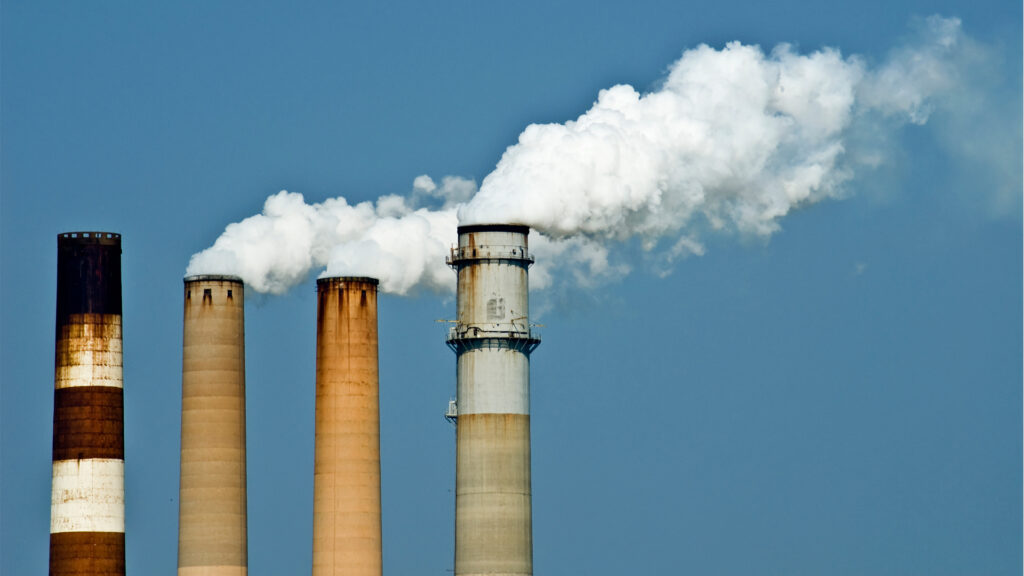By Cassidy Delamarter, USF Communications and Marketing
The University of South Florida Patel College of Global Sustainability is collaborating with community members and leaders across Hillsborough, Pinellas, Pasco and Hernando counties to develop a plan to reduce greenhouse gas emissions over the next four years.
Funded by the U.S. Environmental Protection Agency with a $1 million grant, the Tampa Bay Regional Planning Council and USF developed the Clean Air Tampa Bay Priority Climate Action Plan, a program with a comprehensive strategy to document greenhouse gas emissions and recommendations to reduce emissions, such as installing solar energy systems and converting gas-powered transportation fleets to electric.
The plan, submitted recently to the EPA, focuses on high-priority projects in the transportation and energy sectors — the largest greenhouse gas emitters in Tampa Bay, suggesting they account for nearly 84% of all emissions in 2021.
“The plan identifies several initiatives to improve the transportation and energy sectors, such as transitioning to renewable resources, increasing energy efficiency, expanding public transit and transitioning to electric vehicles,” said Pradeep Haldar, director of sustainable business in the Patel College of Global Sustainability. “Given a majority of the emissions come from the energy and transportation sectors, it will be crucial for changes to be made in these sectors.”

As documented in the plan, other major contributors to greenhouse gas emissions in Tampa Bay include solid waste, production of goods or services that include raw material extraction and processing, losses from natural gas distribution systems, agriculture and carbon removal systems.
This program will provide consistent regional data to project greenhouse gas emission trends and prioritize emission reduction projects throughout the region — a national goal led by the EPA’s Climate Pollution Reduction Grants program.
Based on the current emissions, Haldar and Professor Kebreab Ghebremichael, director of water sustainability, predict emissions could be reduced up to 63% by 2050 if Tampa Bay is aggressive in adopting ways to reduce emissions.
“However, if no changes are made and we continue business as usual, greenhouse gas emissions will continue to linger around 25 million metric tons of carbon dioxide each year and result in major climate-related consequences, such as elevated heat, sea level rise and more frequent hurricanes,” Haldar said.
With support from graduate students, Haldar and Ghebremichael will analyze the impact of the implemented changes over the next four years and create environmental justice mapping to document the impact on low-income areas – one of the plan’s top priorities.
“I want to see the proposed reduction measures become a reality; this will not only impact the environment, but also our community,” said Katia Aldana, one of the graduate student research assistants working on the project. “If these projects are implemented, they will bring economic benefits to the community, technological advancement and reduced emissions from major anthropogenic activities, such as transportation and electricity consumption.”
All 36 of the local jurisdictions within Hillsborough, Pinellas, Pasco and Hernando counties are required to review the plan by April 1 and identify what steps they’ll take to reduce emissions. Then each jurisdiction will be eligible to apply for a share of the $4.3 billion in grants available from the EPA’s Climate Pollution Reduction Grants program to begin implementation.
In 2025, the team will create a detailed analysis of what was implemented throughout the year and how it impacted the emissions.
“By being conscious and taking action, Tampa Bay is setting an example to other major cities and even other countries in taking matters into their own hands about tackling climate change,” Aldana said.
Learn more about this project by clicking here. This piece was originally published at https://www.usf.edu/news/2024/usf-helping-develop-comprehensive-plan-to-reduce-greenhouse-gas-emissions-across-tampa-bay.aspx.
Sign up for The Invading Sea newsletter by visiting here. If you are interested in submitting an opinion piece to The Invading Sea, email Editor Nathan Crabbe at ncrabbe@fau.edu.



